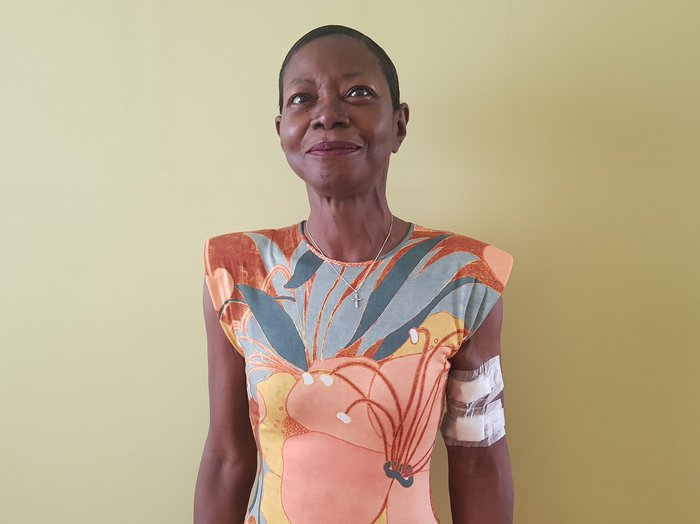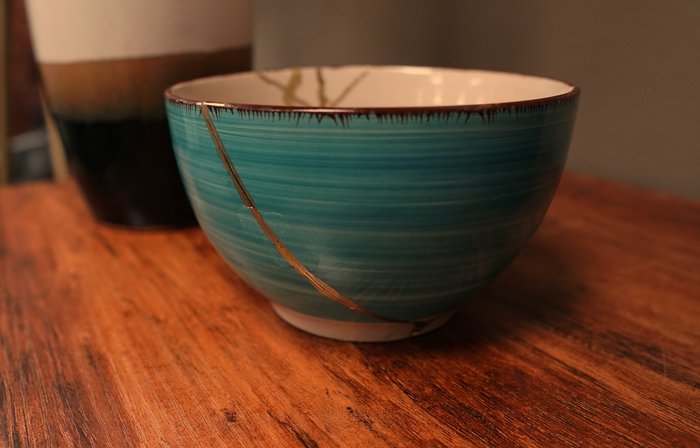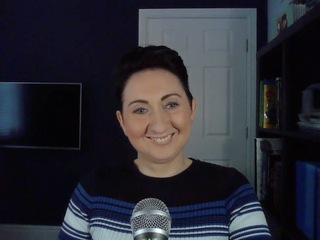Myeloma and my mental health
Sandra has been living with myeloma for fourteen years, having been diagnosed at the age of 44. She talks about her unexpected struggle with depression.

I normally have a positive attitude. I’m a glass half full kind of person – the go-to person in my family if anyone has troubles. But my mental health has suffered because of my diagnosis of myeloma. Though they carefully explain the medical terms and what will happen, no one really prepares you for what you’re going to go through emotionally.
When I had my first stem cell transplant in 2009, it was hard, but I kind of feel I sailed through it. But then the myeloma came back in 2012. And that was tougher.
I thought, I’ve done it once before, I’ll do it again.
But I was more poorly this time. I got shingles and I had Bell’s palsy twice.
I got through the second stem cell transplant but by January 2013, I just felt really awful. I wasn't eating much, I wasn't drinking, and I wasn't urinating at all. I called the hospital and they told me to come in for a kidney biopsy. They did the biopsy and they said, “Your kidneys are crispy,” which made me laugh. But I was in advanced kidney failure and needed dialysis, which I still have five days a week.
I fell into a depression
I’ve had more of a hard time with the kidney failure than the myeloma to be honest. After the myeloma treatment, I was able to play tennis, go walking, swimming, skiing even. But with the additional kidney problems I couldn’t do any of that anymore. And I fell into a really bad depression.
I wasn't eating, I wasn’t even getting out of bed and washing. That's how bad it was. I covered all the mirrors so I didn’t have to look at myself.
I was thinking, it’s just a phase, but I'd never been in a funk like this where I hadn’t been able to come out of it.
It got to the point where my sister was crying (and she’s not a crier), begging me to get help. As it happens, my niece was working at the British Association for Counselling and Psychotherapy. So I called them and they were really good – they contacted my hospital and I was actually able to start counselling on the NHS.
I've become a big advocate of counselling. I tell everybody that I've had therapy, and it was the best thing I've ever done. I have no shame about it, because I might not be here without all the help I had.
Pride got in the way
A key thing that I find with a lot of cancer patients is that pride gets in the way, but you can’t afford to let it. Pride got in the way for me, which is why I slipped into depression. I didn’t ask for help until it was almost too late.
At that point I wasn’t working. I was worried about money. I was going through my savings. I was worried I would lose my house. I hadn’t applied for any benefits because I didn’t know I could – I’d worked since I was 16 and I’d never been unemployed before.
Even though I come from a very close family, I didn’t talk to anyone about it. I couldn't even express how I felt in my heart, it was just so alien to me.
How counselling helped
Counselling finally helped me to be honest with myself and speak my truth always. I was able to open up and discuss all my fears and worries, without fear of judgement, of being told I was silly or to pull myself together and get over it. Not that any of my family or friends would do that – it was all in my head.
But being able to speak to someone independent, who wasn't attached to me in any way was a Godsend. My counsellor just listened, without any pitying glances, and by merely doing that, enabled me to open up. When I did open up, she asked me this question: “If this was your sister, what advice would you give her?”
I pondered on my answer for a while, then suddenly I had that lightbulb moment, when I felt I no longer had the weight of the world on my shoulders. I felt so much lighter.
I'm not saying it was easy, but I also finally realised, it's ok not to be ok, and that I shouldn't have to hide how I'm truly feeling.
I had therapy for three months while I was in hospital, and I have not looked back since. Don't knock it till you try it!
Helping others can help you too
I was lucky. I got the therapy I needed. Then I did a course in Kintsugi, and now I teach Kintsugi classes myself at our local church.
Kintsugi is the Japanese art of putting back together broken pottery with gold lacquer, a metaphor for embracing your flaws and imperfections.
It teaches you that when you think you are broken, you can pick up the pieces and put them back together, learn to embrace your cracks and scars, and see that your broken pieces make you stronger and better than before.

I did the course and then was asked to teach it. I thoroughly enjoy it and for me, it is giving back for the excellent treatment I received. I teach people of all ages, colours, gender and sexuality who struggle with mental health issues (some of them longstanding from childhood) who have been too scared to open up to anyone.
I get a lot from helping others and they in turn learn how to deal with their issues and triggers.
Of course, I am not a trained counsellor and anyone that has deeper issues is referred to a medical professional, as I was.
I also get a lot out of volunteering with the African Caribbean Leukaemia Trust (ACLT). They reach out to minoritised communities for blood, stem cell and organ donors, because it’s harder to find matches for people in these communities. They put on a donor day to find me a match when I was waiting for my first transplant, because we didn’t know whether I would be able to use my own cells.
I got involved with Blood Cancer UK too, helping to develop their research policy and joined their research funding panel. I've loved every single minute of it. I just get so much satisfaction out of it. I'd like to think I've had a hand in a successful research project that's going to move things forward. That I've played a little part in that.
There is life with myeloma
What I’ve found is that there is life after a myeloma diagnosis and treatment. It's a case of not thinking about the things you can no longer do but thinking about the things you can still do. And I don't let it hold me back.
If you find you're struggling emotionally, whether you have blood cancer yourself or know someone who does, get in touch with our Support Service to talk things through and find out where you can get help.

Support for the people around the patient
"There's nothing you can do. You can't look after yourself. You can't eat, you’re pacing." Hear Gail talk about how she felt when her husband was diagnosed with blood cancer.

